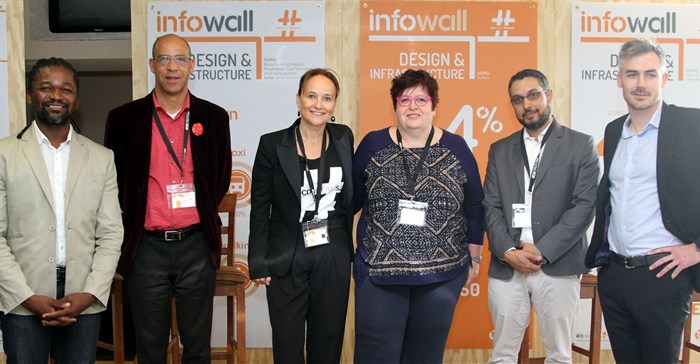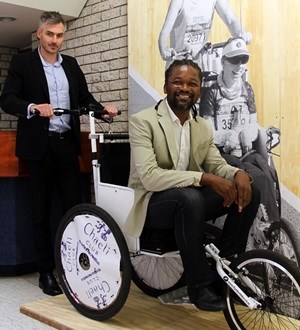Commuters, businesses, industry stakeholders and players all biked, walked, "Ubered" and drove to the first Mobility Indaba #CoCreate2Move, a #CoCreateSA initiative of the Consulate General of the Kingdom of the Netherlands in Cape Town in collaboration with the City of Cape Town, Transport for Cape Town, WESGRO and Accelerate Cape Town. The Indaba aims to address the issues of and find solutions to Cape Town's transport and traffic congestion woes.
With mobility as the main focus, the event engages all attendees, encouraging them to rethink the way we move about in the city and co-create plans to move the city forward. The Indaba saw an interesting and diverse collection of voices split between multiple tracks to tackle mobility in a comprehensive way. The tracks include:
- Entrepreneurship and economics of transport and mobility
- Advocacy and political will
- Design and infrastructure
- Behavioural dynamics
- Health and safety
Looking at the now, the future and how to make it better
The revelation that Cape Town is the city that suffers from the worst traffic congestion in South Africa have been a wake-up call to many. The challenges that the daily commute into the city offer for both those driving private cars and making use of public transport, as well as the unreliability and questionable safety of public transport, have prompted those involved in the industry and those who are passionate about sustainable and quality transport to come up with a better way of doing things.
The movement of private cars into the city en masse has presented a particular problem, as they converge on a central point - the CBD - with further traffic nodes and busy intersections into the city forming bottlenecks that have motorists frustrated and often taking dangerous chances to escape. The sheer number of vehicles coming into the city also presents an environmental concern with emissions reaching an undesirable level.
Furthermore, public transport such as bus services, minibus-taxis, and trains - often serving as the only choice for low-income travellers - have historically been unreliable and dangerous. Improved public transport for people travelling from poor communities in order to give them better, more dignified access to economic opportunities in the city has been identified as a priority at the Indaba.
One of the goals, among the many discussed, is to get cars out of the city centre and provide commuters with desirable, efficient and sustainable alternatives while also implementing a transport system and network to scale that will be able to grow as the city grows.
Cycling and walking reign supreme as alternatives
The city of Amsterdam's transport setup, with multiple means of eco-friendly transport available including water canals, the use of bicycles and pedestrian friendly zones, served as inspiration for what needs to be achieved in Cape Town. While Cape Town cannot just copy and paste solutions from the Netherlands as Bonnie Horbach, the consul general of the Netherlands, noted, it became clear from the multitude of discussions taking place at the Indaba that this is what the commuters and pedestrians aspire to for the city.
Implementing better and more cycling lanes in the city, providing more pedestrian-friendly zones, bike-sharing, and offices and city parks equipped with bicycle facilities were a few of the many suggestions that surfaced. Further integration of new facilities and infrastructure with existing public transport such as Golden Arrow buses, MyCiTi, taxis and an improved railway transport system will be key in providing all commuters and travellers - from far outside the city to those within - a network of options to move about.
Incorporating transport alternatives will go further than just alleviating congestion and kerbing pollution, but will also create a shared space that is safe and healthy for the end-user. Ultimately, the Indaba aims to create a transport network that is sustainable, safe, affordable and inclusive.
Day 2 of the Mobility Indaba will see the preparation and signing of an Action Plan to improve mobility in Cape Town.






































